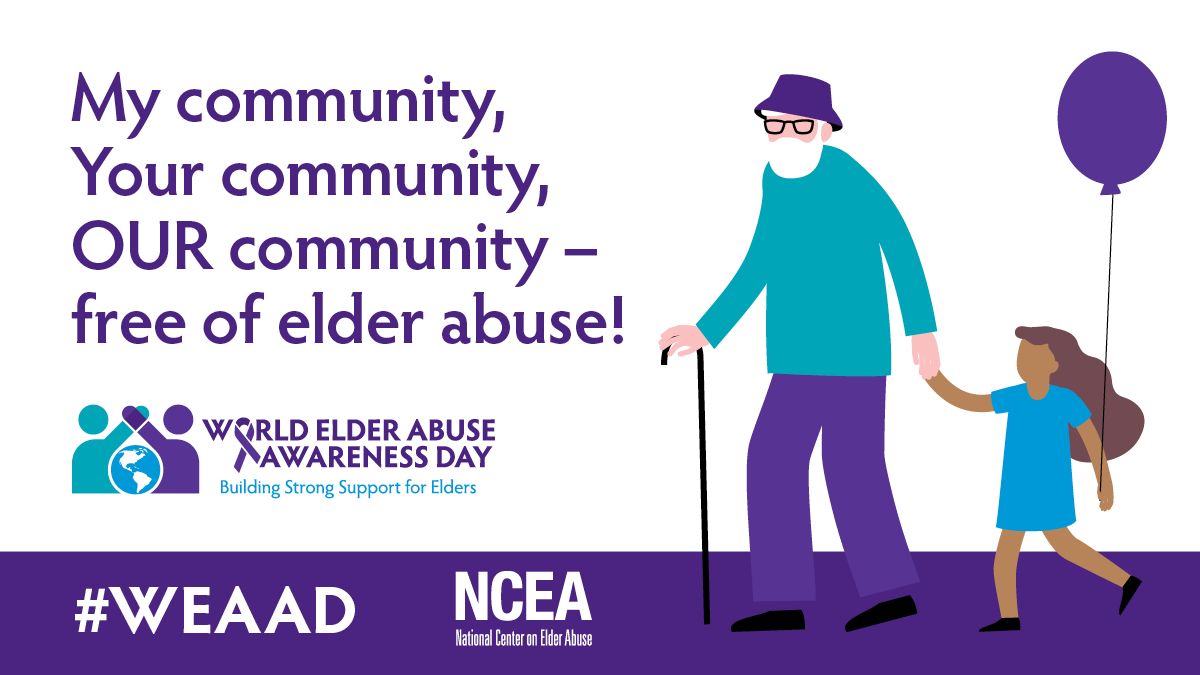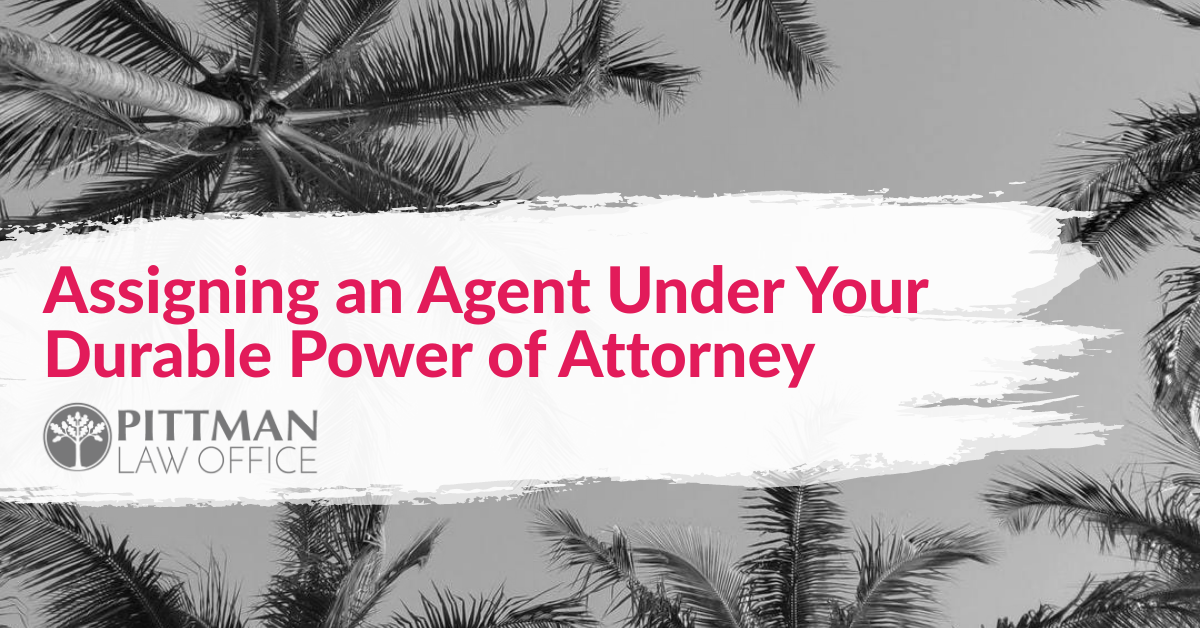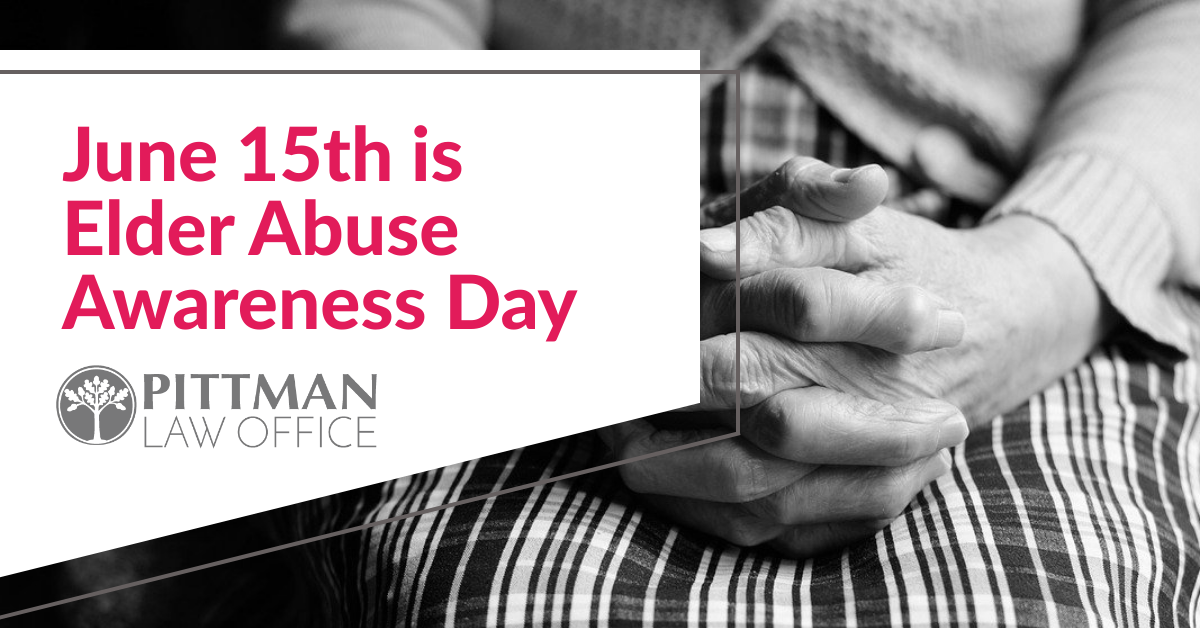June 15th is Elder Abuse Awareness Day and your friends at Pittman Law Office invite…
The textbook definition of Guardianship is:
It’s a legal process appointing a ‘competent adult’ (guardian) to be responsible for the care, custody and control for a ‘vulnerable or incapacitated person’ often referred to as a (ward).
If you have an elder person in your life that has lost his or her ability to think clearly, it will affect his or her capacity to make informed decisions. If the person you care for can no longer make rational, clear decisions about their finances, health care, or other aspects of their life, guardianship may be the next step, if there isn’t a durable power of attorney already established.
Read on to learn what you need to know about guardianship.
What You Need to Know about Guardianship for Adults
In order for your elder relative to avoid guardianship, your elder relative needs a durable power of attorney. If he or she doesn’t have one, you’d have to go to court to have him or her declared incompetent based on an expert’s findings. It would be up to the court to appoint a guardian.
If your elder loved one is ruled incompetent, the court will transfer the responsibility for managing his or her finances, health care, living arrangements, making end-of-life arrangements, and so on to a guardian. However, the process is costly – you may spend a lot of time and money. It may also be mentally and emotionally exhausting. Why? Because family members may disagree about the need for guardianship or who should be the guardian – it could cause a rift within the family. This is why it’s important for your elder loved one to have a durable power of attorney in place before incapacity.
If you become the guardian of an elder adult, you MUST only act in areas authorized by the court. However, you may be limited or have extensive authority, depending on what the court ruled. The court may assign responsibilities to several parties. For instance, a bank trustee or financial advisor may oversee financial decisions. Family members would handle personal decisions like end-of-life arrangements. Usually, the court requires financial accounting and reports regularly or whenever important financial decisions are made.
Finally, court-appointed guardians are allowed to receive a reasonable payment for their services. But if you’re a family member, friend, or spouse, you may not receive compensation. If a private or public guardian is appointed, they’re paid directly from the elder person’s estate, if they have the funds. But keep in mind that the court approves the payment amount, and you, the guardian, must thoroughly account for all of your services, from the time each task requires to any out-of-pocket costs.
Does a Loved One Need Guardianship?
If you find yourself in a situation where your elder relative needs guardianship, keep in mind that it’s a major responsibility. You must fully understand what’s involved and decide if you’re ready for the responsibility – you may suffer from caregiver burnout. In fact, you may want to have a family meeting to discuss who should be appointed as the guardian.
When you accept a guardianship, an annual review and assessment reviews the need for continuing or terminating a guardianship. Also, the court will be alerted to a potential restoration of some or all of your elder relative’s rights.
If you live in Florida, contact us at the Pittman Law Office, an elder law firm, so we can discuss how to avoid a guardianship for adults by establishing a durable power of attorney and designation of health care surrogate in Florida.




